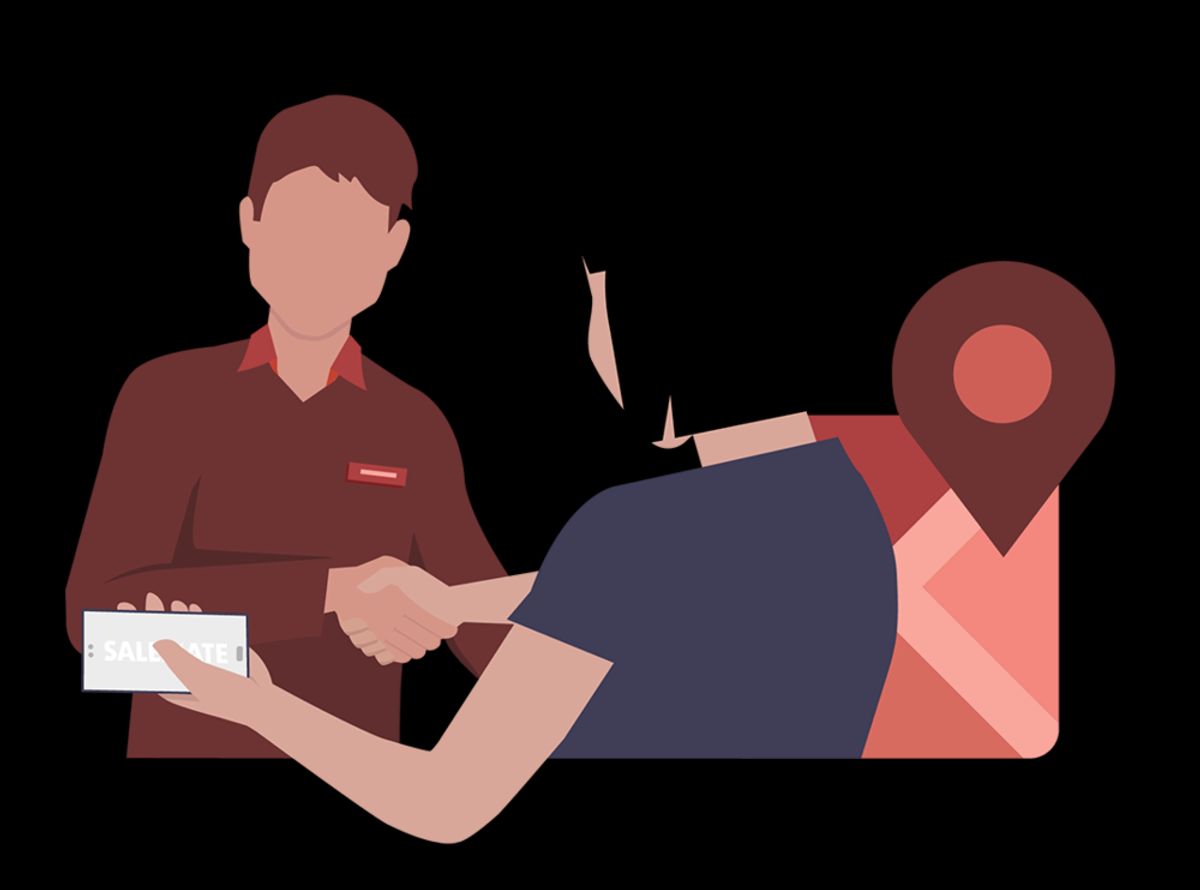Entering the French retail market can be a complex but rewarding endeavor for USA exporters. This article outlines strategic approaches that American businesses can adopt to successfully navigate the nuances of dealing with French retailers. From understanding cultural and regulatory aspects to building effective business relationships and managing logistics, these strategies are designed to help exporters optimize their operations and achieve long-term success in the French marketplace.
Key Takeaways
- Grasping cultural nuances and consumer behavior is crucial for tailoring products and marketing strategies to the French audience.
- Strict adherence to the regulatory environment and compliance with French laws will ensure smooth market entry and distribution.
- Effective communication, negotiation, and understanding of French business etiquette are key to building and maintaining strong business relationships.
- Navigating legal and financial aspects, including understanding contractual obligations and managing currency risks, is essential for operational stability.
- Optimizing logistics, understanding customs regulations, and ensuring product quality are vital for a seamless supply chain management process.
Understanding the French Retail Market
Cultural Nuances and Consumer Behavior
To thrive in the French retail market, grasping the cultural nuances is essential. French consumers value quality, tradition, and authenticity, often seeking products that align with their lifestyle. It’s not just about the product; it’s about the story behind it.
Understanding French customs procedures, legal recourse, communication styles, and negotiation practices is crucial for successful exports to France. Building strong business relationships and staying informed on import regulations are key strategies.
Embrace the ‘Made in USA’ appeal, but ensure it resonates with French values. Localize your approach to reflect French tastes and preferences.
Remember, patience is a virtue in the French market. Relationships are built over time, and trust is earned through consistent, high-quality interactions. Be prepared to invest in long-term commitments and adapt to the slower pace of business dealings.
Regulatory Environment and Compliance
Navigating the regulatory landscape in France is crucial for successful market entry. Compliance is key; understanding and adhering to French regulations can make or break your export venture. The Autorit\u00e9 de la Concurrence oversees competition, while various other agencies govern safety, labeling, and environmental standards.
- Familiarize yourself with the General Data Protection Regulation (GDPR) for handling customer data.
- Ensure your products meet the EU’s strict safety and labeling requirements.
- Stay informed about the latest changes in trade and tax laws that could affect your business.
Regulatory compliance is not just about avoiding fines; it’s about building trust with consumers and retailers alike. A reputation for reliability and adherence to local laws can set you apart in a competitive market.
Remember, non-compliance can lead to costly delays, legal challenges, and damage to your brand’s reputation. Invest in legal expertise to navigate this complex environment effectively.
Market Entry Strategies and Distribution Channels
Entering the French retail market requires a strategic approach to distribution channels. Selecting the right partners is essential for navigating the complex landscape. Consider the following points:
- Direct Sales: Establishing a local presence can offer control over the brand experience.
- Agents and Distributors: Local experts can provide valuable insights and access to established networks.
- E-commerce: An increasingly popular channel, offering scalability and direct consumer engagement.
Adaptability is key when dealing with payment hurdles, such as those encountered by US fashion brands. Currency conversion challenges, strict regulations, and consumer preferences demand a flexible approach to financial transactions.
To succeed, one must understand the nuances of the French payment landscape and adapt accordingly.
Remember, each channel comes with its own set of regulatory requirements and consumer expectations. It’s crucial to conduct thorough research and possibly engage with local consultants to ensure a smooth market entry.
Building Effective Business Relationships
Communication and Negotiation Techniques
Mastering the art of communication is crucial when dealing with French retailers. Understand the importance of context and subtlety in conversations. It’s not just what you say, but how you say it. French business culture values directness and clarity, yet appreciates politeness and formality.
Effective negotiation hinges on preparation and understanding the other party’s expectations. Establish a rapport and demonstrate respect for their business practices. Here’s a quick checklist to guide you:
- Research the retailer’s background and market position
- Prepare your proposals with precision and detail
- Anticipate counter-offers and be ready to adapt
- Emphasize mutual benefits and long-term gains
Remember, successful negotiations are about finding a balance between assertiveness and accommodation. Strive for a win-win outcome that fosters ongoing collaboration.
Incorporate these strategies with the following tips for exporters: establish clear payment terms, build strong relationships, implement credit control measures, and navigate legal frameworks for successful trade.
Adapting to French Business Etiquette
When engaging with French retailers, tailor your approach to the regional differences that characterize the French market. This nuanced strategy is essential for building strong relationships and ensuring compliance with local practices.
Punctuality is perceived differently in France compared to the USA. Arriving on time for meetings is expected, but don’t be surprised if your French counterparts are a few minutes late. This is not seen as a sign of disrespect, but rather a cultural norm.
Embrace the formalities of French business culture. Titles are important, and using them correctly can set the tone for a respectful and professional interaction.
Understanding and adapting to French business etiquette can be the difference between a successful partnership and a failed venture. Here’s a quick checklist to keep in mind:
- Dress conservatively and professionally for meetings.
- Exchange business cards promptly and with care.
- Initiate conversations with light, non-controversial topics.
- Avoid hard selling; focus on building rapport and trust.
- Be prepared for lengthy discussions and negotiations.
Remember, success in the dynamic French market requires more than just a great product; it demands a deep understanding of cultural nuances and a commitment to long-term relationships.
Long-term Partnership Considerations
Forging long-term partnerships with French retailers requires a strategic approach. Invest in understanding the local market dynamics and consumer expectations to ensure alignment with your business goals. Regularly review partnership performance, setting clear benchmarks for success.
Trust is the cornerstone of any lasting business relationship. Be transparent in communications and consistent in delivering quality. Address issues proactively and work collaboratively to find solutions. Here’s a simple framework to guide your efforts:
- Establish shared objectives and values
- Communicate openly and frequently
- Foster mutual respect and understanding
- Adapt and evolve with market changes
Utilizing trade agreements and investing in language and cultural training are pivotal for B2B success. Overcome trade obstacles with expert strategies to maintain a competitive edge.
Remember, patience and commitment are key. Long-term partnerships don’t happen overnight but are built over time through shared experiences and a deep understanding of each other’s business culture.
Navigating Legal and Financial Aspects
Understanding Contractual Obligations
Entering the French market requires a solid grasp of contractual intricacies. Ensure contracts are comprehensive, covering all aspects from delivery terms to dispute resolution. Ongoing due diligence is crucial in international trade. Implement credit reports, follow-up routines, and cultural understanding for smoother transactions. Negotiate payment terms wisely and use trade finance solutions.
Transparency in agreements fosters trust and minimizes misunderstandings. Be aware of the legal costs associated with potential litigation, which can range from $600 to $700, depending on jurisdiction. Consider the age of accounts and the number of claims when evaluating collection rates.
It’s essential to understand the financial implications of legal actions and the rates for debt recovery services.
Familiarize yourself with the three-phase Recovery System, which includes initial contact, attorney involvement, and litigation recommendations. This structured approach can guide exporters through the complexities of managing international contracts.
Managing Export Finances and Currency Risks
For USA exporters, managing finances when dealing with French retailers requires a strategic approach. Mitigate currency risks by using forward contracts or currency options. Establish clear payment terms to avoid confusion and ensure timely receipts.
Trade agreements play a pivotal role in defining the financial landscape. Be aware of the nuances that may affect your transactions. Here’s a simple checklist to keep your finances in check:
- Understand the trade agreements between the USA and France.
- Set explicit payment terms to prevent disputes.
- Utilize hedging instruments to protect against currency fluctuations.
- Partner with reliable debt collection agencies for efficient recovery.
In the event of non-payment, consider the cost-benefit of litigation versus continued collection efforts. Remember, upfront legal costs can range from $600 to $700, depending on jurisdiction.
The automotive industry presents its own set of challenges, from legal compliance to debt management. Stay informed and prepared to navigate these sector-specific hurdles.
Litigation and Debt Recovery Processes
When dealing with French retailers, understanding the litigation and debt recovery processes is crucial for U.S. exporters. The journey to recover debts can be complex, often involving multiple phases. Initially, efforts focus on direct communication with the debtor, utilizing calls, emails, and letters. If these attempts fail, the case may escalate to legal action.
Litigation requires upfront investment in legal fees, which can range from $600 to $700. This step involves filing a lawsuit to recover the owed amounts, including filing costs. Should litigation prove unsuccessful, exporters will not be held liable for additional attorney fees.
The decision to litigate is significant. Assess the debtor’s assets and the likelihood of recovery before proceeding.
Collection rates vary based on the age of the account and the number of claims. For instance:
- Accounts under 1 year: 30% of the amount collected.
- Accounts over 1 year: 40% of the amount collected.
- Small accounts under $1000.00: 50% of the amount collected.
Choosing the right strategy is essential for effective debt recovery. Exporters must weigh the costs and potential benefits of litigation against continued collection efforts.
Marketing and Brand Positioning
Tailoring Your Brand for the French Audience
To resonate with the French market, US machinery suppliers must not only offer quality products but also understand the cultural intricacies that influence purchasing decisions. Crafting a brand image that aligns with French values and aesthetics is crucial.
- Localize your messaging: Ensure that all marketing materials speak directly to the French consumer’s preferences and tastes.
- Adapt your branding: Consider the French penchant for luxury and sophistication when designing your brand’s visual identity.
- Engage with cultural trends: Stay abreast of current French trends to make your brand relevant and appealing.
Emphasizing sustainability and innovation can set your brand apart in a market that values both tradition and forward-thinking.
Remember, successful branding goes beyond translation; it’s about creating a connection with your audience that feels authentic and trustworthy. Tailoring your approach to the French audience can lead to increased brand loyalty and market share.
Effective Advertising and Promotion Strategies
To captivate the French audience, tailor your message to resonate with local tastes and preferences. Utilize storytelling that aligns with French values and aesthetics. Emphasize the authenticity of your brand to foster trust and connection.
- Research and leverage popular French media channels.
- Engage with influencers and thought leaders to amplify your message.
- Invest in localized content and SEO to enhance online visibility.
Ensure your advertising campaigns reflect the sophistication and elegance often associated with French consumer expectations.
Understanding the nuances of the French market is crucial. Credit risks, such as late payments and defaults, can impact promotional investments. Overcoming language barriers is essential; consider professional translation services to maintain clarity and appeal in your marketing materials.
Leveraging Digital Platforms and E-commerce
In the digital age, e-commerce is a critical channel for USA exporters to reach French consumers. The digital marketplace offers a vast audience and simplifies the buying process, but it also brings unique challenges, especially when dealing with unpaid invoices.
For successful digital sales, consider these steps:
- Establish a robust online presence through localised websites and social media.
- Utilize popular French e-commerce platforms to gain visibility.
- Implement secure payment systems that cater to French preferences.
When facing difficulties in collecting payments, it’s essential to understand the recovery process. Legal frameworks in France may differ significantly from those in the USA, presenting obstacles for exporters. A phased approach to debt recovery can be effective:
- Phase One involves initial contact and persistent communication attempts.
- Phase Two escalates the matter to affiliated attorneys within the debtor’s jurisdiction.
- Phase Three assesses the likelihood of recovery and may recommend litigation.
Exporters should be aware of the potential costs associated with legal action, including court costs and attorney fees. Here’s a brief overview of the potential fees:
| Phase | Action | Potential Cost |
|---|---|---|
| Three | Litigation | $600 – $700 |
Remember, the goal is to mitigate risks and ensure a smooth transaction process. By leveraging digital platforms effectively and being prepared for the challenges of debt recovery, USA exporters can thrive in the French retail market.
Logistics and Supply Chain Management
Optimizing Transportation and Warehousing
Efficient logistics are the backbone of export success. Streamline your supply chain to ensure timely delivery and cost-effectiveness. Consider these key points:
- Location, Location, Location: Choose strategic warehousing to minimize transportation time and costs.
- Inventory Management: Keep stock levels optimal to avoid overstocking or stockouts.
- Technology Integration: Utilize advanced software for real-time tracking and inventory control.
By optimizing transportation routes and warehousing strategies, exporters can significantly reduce overheads and enhance customer satisfaction.
Remember, the goal is to balance speed with economy. Regularly review and adjust your logistics plan to align with market demands and operational capabilities. Overcoming communication barriers and risks is crucial, especially in scenarios like automotive export gridlock. Addressing unsettled accounts and securing payments are vital for maintaining a fluid supply chain in USA-France trade sectors.
Dealing with Customs and Import Regulations
Navigating the complexities of French customs and import regulations is a critical step for U.S. exporters. Timely compliance is essential to avoid delays and additional costs. Exporters must be well-versed in the necessary documentation and procedures to ensure a smooth entry into the French market.
Customs duties and taxes can significantly affect the final cost of your products. It’s important to calculate these expenses accurately to maintain competitive pricing. Here’s a simplified breakdown of potential costs:
- Customs duties: Based on product classification
- VAT (Value Added Tax): A percentage of the CIF value (Cost, Insurance, and Freight)
- Excise taxes: Applicable to certain goods like alcohol and tobacco
Exporters must comply with French automotive regulations, customs, and IP laws to ensure smooth transactions and payment collection. Understanding legal frameworks and trade laws is crucial.
Partnering with a local customs broker or logistics expert can provide valuable insights and facilitate the import process. They can assist with tariff classifications, tax calculations, and ensure that all regulatory requirements are met.
Ensuring Product Quality and Compliance
For U.S. exporters, compliance with French standards is non-negotiable. Ensure accurate classification and meet stringent safety requirements to maintain market presence. Obtain necessary certifications, especially for chemical exports, to demonstrate adherence to regulations.
- Review current regulations frequently.
- Engage with compliance experts to navigate complex requirements.
- Align products with French and EU trade agreements to minimize risks.
Timely payments hinge on compliance. Non-adherence can lead to costly delays and legal complications. Stay informed and proactive to avoid disruptions in your export operations.
Remember, compliance is an ongoing process. Regular audits and updates to your quality management systems are crucial for continuous access to the French market.
In the fast-paced world of Logistics and Supply Chain Management, ensuring your receivables are efficiently managed is crucial. At Debt Collectors International, we specialize in providing tailored collection solutions that keep your logistics operations running smoothly. Our experienced team is ready to assist you with dispute resolution, skip tracing, and asset location to maximize your recovery efforts. Don’t let outstanding debts disrupt your supply chain—visit our website to learn more about our services and how we can support your business’s financial health.
Frequently Asked Questions
What are the key cultural nuances and consumer behaviors to consider when entering the French retail market?
Understanding the French consumer involves recognizing their preference for quality over quantity, a taste for luxury and artisan products, and a strong sense of brand loyalty. Additionally, French consumers value the shopping experience, which means that customer service and store ambiance are important factors.
What regulatory requirements must US exporters comply with when dealing with French retailers?
US exporters must ensure compliance with EU and French-specific regulations, including product standards, labeling requirements, and safety regulations. It’s also important to stay updated on any changes in tariffs, trade agreements, and customs procedures.
How can US exporters build effective communication and negotiation with French business partners?
To communicate effectively with French retailers, it’s crucial to show respect for their language and culture, perhaps by learning some key French phrases or employing a bilingual representative. Negotiations should be approached with a focus on building long-term relationships and understanding the French preference for formal business dealings.
What are the legal considerations for US exporters when drafting contracts with French retailers?
US exporters should be aware of the differences in contract law between the US and France. They should ensure that contracts are clear on payment terms, delivery schedules, and liability clauses. It’s also advisable to seek legal counsel experienced in international trade law to navigate these complexities.
How should US exporters manage their finances and mitigate currency risks when exporting to France?
Exporters should consider using hedging strategies to protect against currency fluctuations. It’s also important to understand the tax implications of exporting goods to France and to set up efficient payment processes with French retailers, possibly through the use of letters of credit or trade finance solutions.
What steps should US exporters take to ensure their products meet French import regulations and quality standards?
Exporters must familiarize themselves with the specific certifications and standards required for their products in France. This may include obtaining CE marking or passing quality control inspections. Additionally, working with a local agent or distributor can help navigate the import process and ensure compliance with French regulations.





